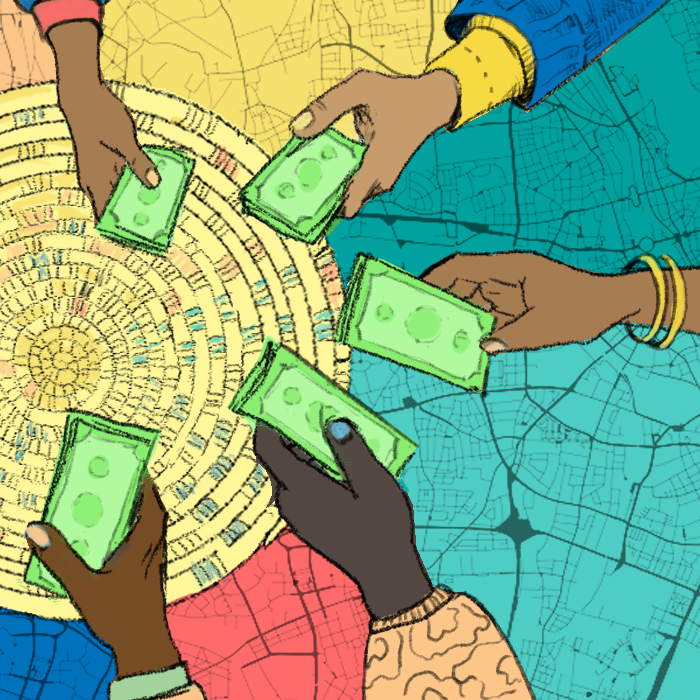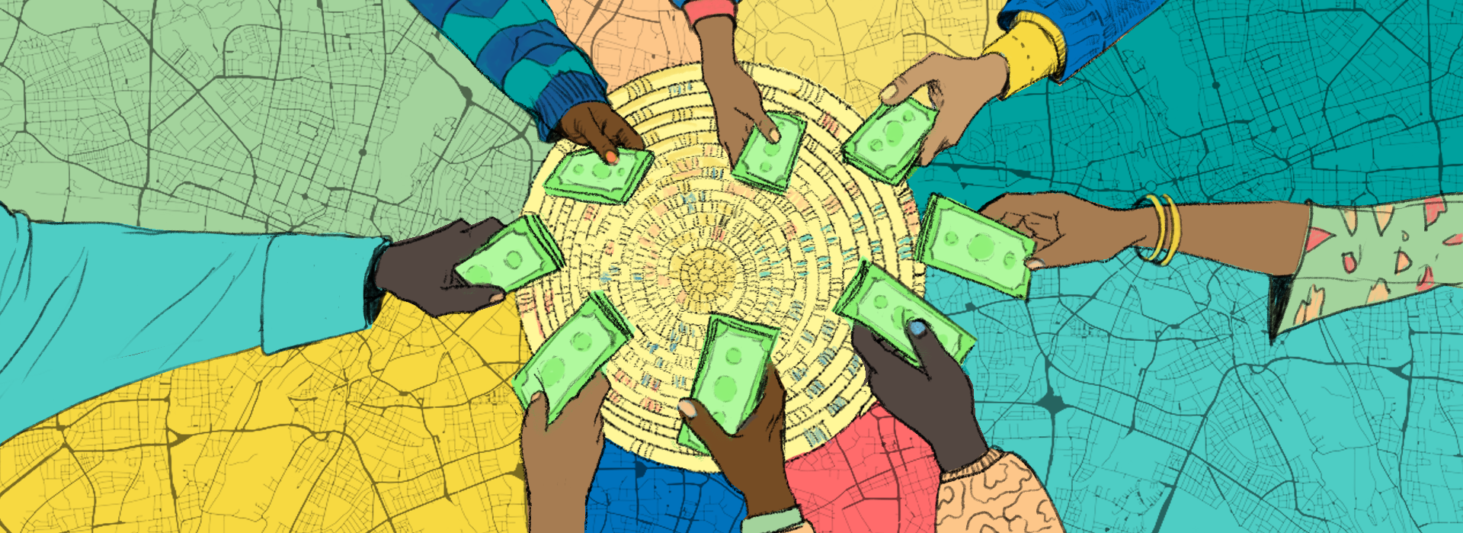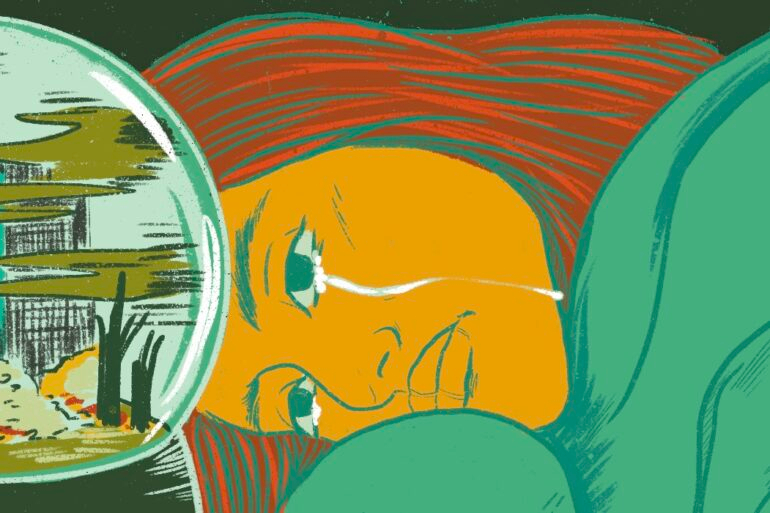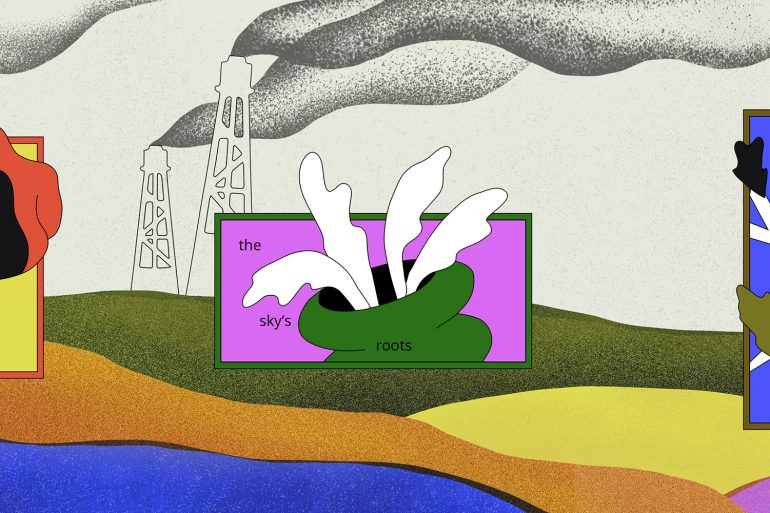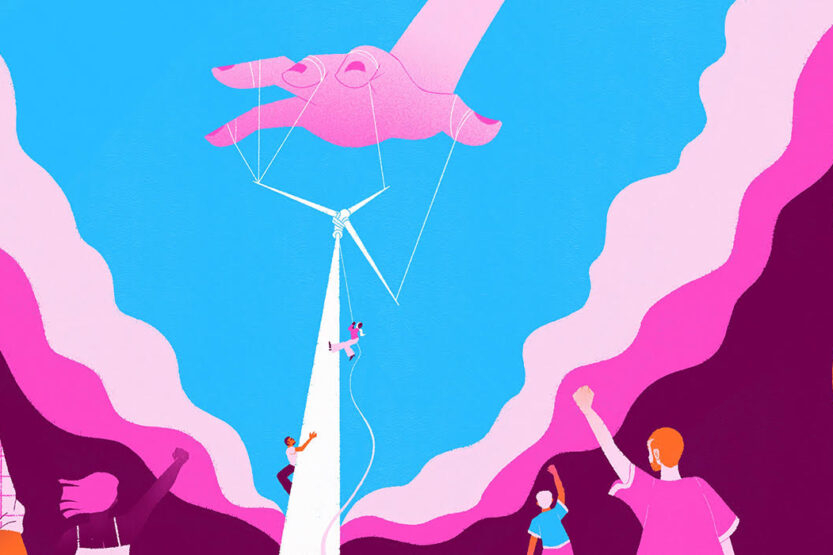As I walk to Walthamstow station, there is a concrete path that leads towards the station. It’s too narrow during rush hour and people tend to bump into each other – personally, I find it cumbersome. Here is a dusty, man-made ‘desire path’ that cuts across a pretty neglected green space that also leads to the station, “made over time by the wishes and feet of walkers” who’ve chosen to avoid the designed path.
I frequent this dusty path when I yearn to add a bit of excitement to my walk or when it’s too busy and I’m in a rush.
City planners state that desire paths are thought to indicate a “yearning” or a sense of free will, because despite the predetermined paths available, walkers choose to build routes of their own volition. One by one, walkers add to the dusty path, making it a more visible and viable option to get to the destination.
Desire paths as a framework for community economics
We can apply the idea of desire paths to thinking about the economy. Where the paved predetermined path is the capitalist economic system, the destination is the needs to be met: housing, food, education. The dusty desire path, then, becomes community economics; a way of meeting societal needs in an alternative way outside of what capitalism requires out of necessity.
Desire paths in this case symbolise a collective yearning and the acts of divesting from the capitalist economic system.By more people’s feet taking that invisible path and making it more visible, by choosing to trust in each other and our collective solutions. Moreover, refusing for corporations, landlords and politicians to have the power to decide whether we get our needs met or not. Unlike the top down capitalist economic system that is designed by a select few for all of us to follow, we build our own desire paths through our relationship to each other.
Capitalism isn’t the only option
As Black Liberatory Economist and Educator, I deliver workshops and talks to engage communities in decolonial economic thought and practice. Lots of the people I encounter define themselves as anti-capitalist, they feel angry and upset about how unfair the economic system is. They are desperately seeking to end capitalism, but towards the way the alternative can feel abstract or far off in the future.
This feeling is compounded by the fact that they’re also struggling with the urgent question of how to meet their individual needs such as housing or work and seeing those around them struggling too. It’s overwhelming, it’s disheartening – it can feel futile.
To combat this futility, I like to share with them the wise words of African American political economist Jessica Gordon Nembhard who reminds us that capitalism is one of the youngest ways of organising the economy, while community economics or solidarity economic system is the oldest and most effective way of meeting collective needs.
Hearing that an economy built by colonialism and slavery to create profit for a select few, organised around exploitation and extraction isn’t the only way of doing things gives people a sense of hope. It highlights how the capitalist economic system is one of many modes of organising the economic system, yet it gets all the airtime. This tends to make my workshop participants curious about what those alternatives are and how they can try them out.
The economies of the everyday
For the sceptical workshop participants, I like to illustrate this point by referencing the diverse economies framework created by Take Back The Economy which visualises the economy as an iceberg. At the top of the iceberg sits capitalism as we’ve come to know it, including wage labour, reliance upon extractive industries and property, business and enterprise owned by private owners.
Below the iceberg, hidden from view underneath the water, we see the essential economic activities that sit outside the capitalist way of doing things. Such alternative options include community gardens, housing cooperatives, parenting or community currencies and theft (my favourite). These activities are a range of big and small actions that can be carried out everyday, in our relationships and by everyone.
It’s important to say that these activities are needed to make the capitalist economy function: without these activities, the economy would undoubtedly collapse. Finally, these activities are those often carried out by racialised and working classes – particularly those who cannot participate in the capitalist economy and are most impacted by structural inequality.
Black economic history and thought
Black communities within the UK have historically refused the ways that structural racism, colonialism and capitalism has defined them within this system to be determined by poverty and violence.
The desired path paves the journey towards self determination where Black communities control every aspect of their own community, institutions and political economy – simply put the ability to define the terms of our lives outside of the ways that capitalism requires from us. They are taken from a place of necessity.
I am reminded of the historic desire paths taken to meet the need for housing by Black communities in the UK. From Black squats in Brixton or the work of uncle and community-led housing expert Claude Hendrickson 1987 Self Build Project in Leeds where a group of 12 young unemployed Afro-Caribbeans from Chapeltown Area built a street of houses that are still there today.
When I interviewed Claude as part of my archival work, he said what inspired him was the need for Black communities to “inspire and lift each other, and remember that we are in charge of our own futures.”
Savings circles as economic practice
My grandmother Thenjiwe loved to make extra money wherever she could to make ends meet for her family. She ran a community garden with her co-workers at the nursery where she worked and she was “banker lady” of women’s savings circle or umdlalo as we call them in Ndebele. She and the other women of the village of Gwabalanda would come together to collectively save so that they would be able to invest in themselves for their families with the help of each other
The way that these savings circles work is that a group of women – let’s say 9 – would come together and collectively decide how much they were able to put in the collective “pot.” If each woman put £150 in, the total pot amount would then be £1350. The women would pick a number between 1-9, to symbolise which month they’d receive the amount, if you picked the number 3 and the round started in January, you’d receive the collective pot in March (3rd month of the year). This works well because it would take an individual a long time to save £1,350 but in the collective it’s easier and quicker to save.
My aunt Sindi recalls how when she was a child, my grandmother’s friends would come to their house when it was my grandmother’s turn to deposit the collective pot. They’d prepare food and it was a mini party, they’d put a big plate in the centre of the room and pay their contribution in cash. Together, the women would discuss what they needed help with and how the money would help them towards that goal, for example one might want to pay for a funeral, her child’s school fees or to pay debts.
When my auntie migrated to the UK in the 90s, she was part of savings circles with other immigrant women so she was able to stay afloat. She says that she was able to use the money to be able to pay her immigration fees and to afford to pay for her rent as the care work she was doing didn’t pay enough.
Subscribe to shado's weekly newsletter
Exclusive event news, job and creative opportunities, first access to tickets and – just in case you missed them – our picks of the week, from inside shado and out.

Black communities as architects of emancipatory economies
I find the stories of savings circles fascinating because something my grandmother did with her friends, I found out other migrant communities in the UK were doing too. Umdlalo was Pardner for my Caribbean friends, it was Ayuuto for my Somali friends, Boxhand for Guyanese friends.
I found out that the Windrush Generation were able to collectively save to buy houses in the UK. Through conversations with elder Adotey Bing Papoe of Afrikan Cooperative Union Credit, I learnt that what my grandmother was doing was a form of a cooperative. Savings circles are a form of Indigenous and ancestral economic tool but because they are “informal” – based on relationships as opposed to financial infrastructure of the capitalist ideal they often go unnoticed.
Áurea Mouzinho writes that if we were to understand the economy as a series of relations, institutions and practices oriented towards the sustenance of livelihoods, savings circles are a testament that, around the world, African, Afro-descendant and Black communities have been the “custodians and architects of collective, care-oriented, regenerative and emancipatory economies that have persisted beyond, alongside and despite the hegemony of capitalist social relations.” I love the word “architects” in that sentence, as it points to the work that it takes to construct the alternatives.
Relationships and building nourishing economic realities
Returning to the desire paths, savings circles among other forms of community banking, are paths born of the desire to meet the community needs. They are collective solutions to collective problems that have emerged from Black communities’ unique histories of structural inequality and the need for self determination within the capitalist economy.
Taking the alternative path can be risky and dangerous, especially as Black communities face significant risk of being criminalised and the way that systems are designed to block our self determination. For example, there have been incidents of Black women being arrested on suspicion of theft when paying in their savings circles earnings into their banks. Meanwhile, white credit unions and social enterprises receive almost no scrutiny and increased investment by the government.
I believe that this is a function of the capitalist economic system to dismantle all radical alternatives, keeping us in the state of hopelessness instead of experimentation. Capitalism is sneaky in this way, it acts as a vacuum to our imagination, and feeds us norms of distrust, fear, competition and individualism. This is furthered by the invisibilisation of Black economic thought and practice that show that economies built on trust, reciprocity, mutuality and care are possible.
I propose the remedy for this is to archive the collective, care-oriented, regenerative and emancipatory economies of the past through the African oral history tradition. To call for a radical retelling of our economic histories that tells the stories of our grandparents, aunties and uncles building nourishing economic realities together in the face of multiple crises.
Like the Sankofa bird, we need to collectively look backwards at historic Black self help movements in order boldly to take steps towards the alternative path knowing that others have walked it before. How can speaking with your elders and learning about your heritage aid us in building liberatory economies?
What can you do?
Learn about historic and contemporary Black Economic Self Determination movements:
- Watch Claude’s Frontline Self Build Video
- Read Áurea Mouzinho groundbreaking map of African Liberatory Economic Practice
- Read Zahra Dalilah Resourcing Our Communities Tool Kit
- Watch Trans Community Resourcing: In Conversation with Qween Jean and Cayenne Doroshow
Invest in your money in Black led Economic Self Determination
- Donate to People’s Dem Collective work of building a Black heritage centre in Margate
- Donate to Coffee Afrik CIC Food Cooperative work
- Donate to save Soilsistars and Momma Selma’s Lands
